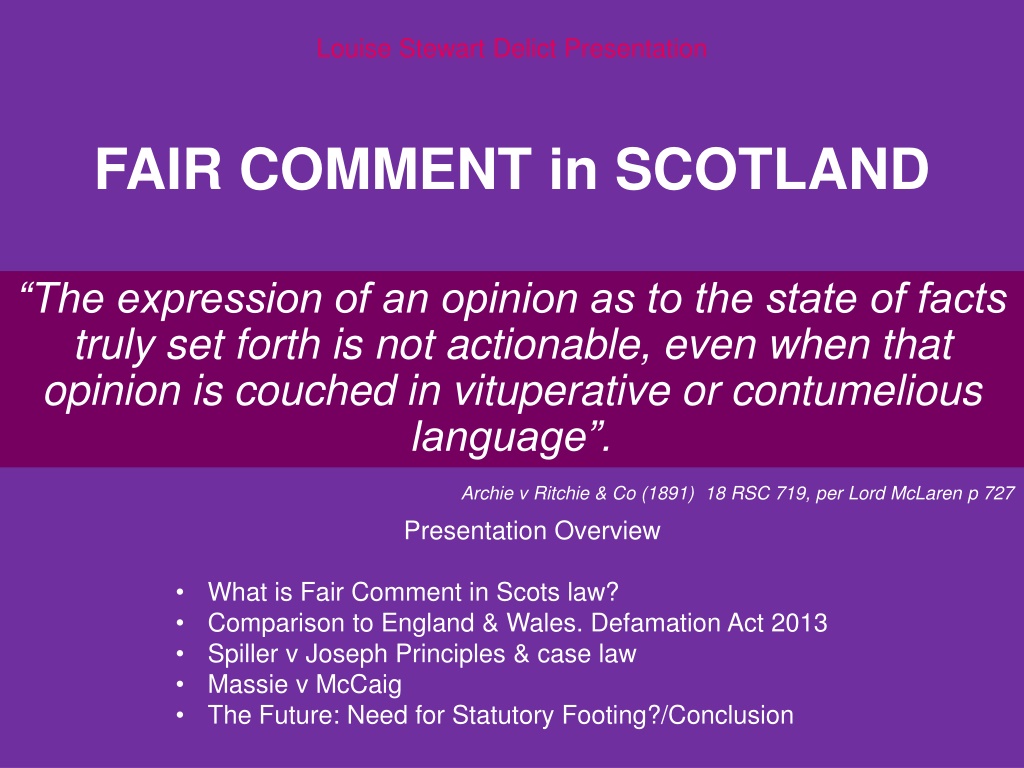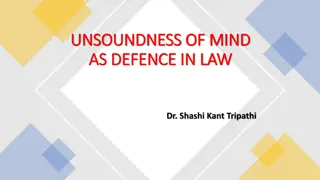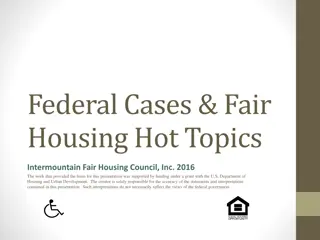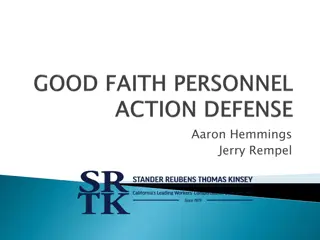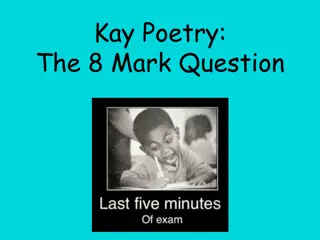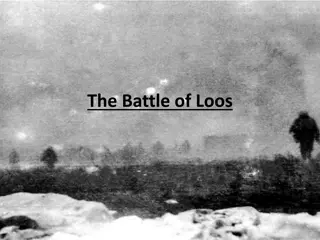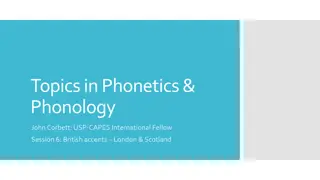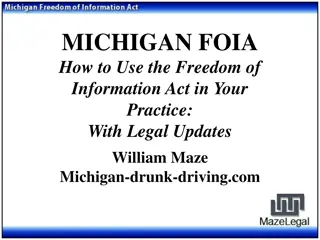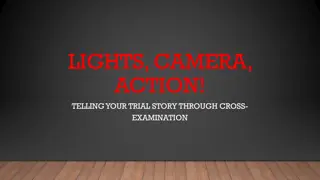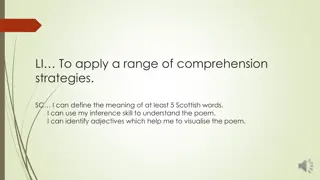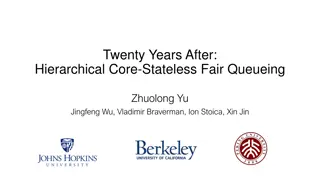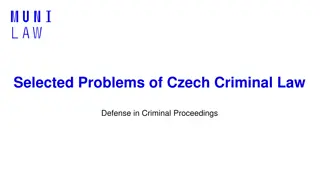Understanding Fair Comment Defense in Scottish Law
Fair comment is a common law defense in Scots law that facilitates freedom of speech by allowing opinions on matters of public interest. Compared to English law, Scotland has different approaches to defamation, with the Defamation Act 2013 mostly applying to England and Wales. The defense of fair comment in Scotland protects honestly held opinions based on facts, with the requirement for the opinion to be on a matter of public interest removed under the new legislation. Cases like Spiller v Joseph and Massie v McCaig have shaped the application of fair comment in Scottish legal contexts.
Download Presentation

Please find below an Image/Link to download the presentation.
The content on the website is provided AS IS for your information and personal use only. It may not be sold, licensed, or shared on other websites without obtaining consent from the author. Download presentation by click this link. If you encounter any issues during the download, it is possible that the publisher has removed the file from their server.
E N D
Presentation Transcript
Louise Stewart Delict Presentation FAIR COMMENT in SCOTLAND The expression of an opinion as to the state of facts truly set forth is not actionable, even when that opinion is couched in vituperative or contumelious language . Archie v Ritchie & Co (1891) 18 RSC 719, per Lord McLaren p 727 Presentation Overview What is Fair Comment in Scots law? Comparison to England & Wales. Defamation Act 2013 Spiller v Joseph Principles & case law Massie v McCaig The Future: Need for Statutory Footing?/Conclusion
WHAT IS FAIR COMMENT? Common law defence Facilitate Freedom of Speech by commenting on matters of public interest paraphrased from Tse wai Chun v Chen [2001] EMLR 777 at 778 DIFFERENCE BETWEEN COMMENT STATEMENT OF FACT Commentary ? Assertio n?
Scottish v English Approach The Defamation Act 2013 applies mostly to England and Wales England & Wales Scotland Section 3 of the 2013 Act does not apply to Scotland. The defence of fair comment in Scotland protects honestly held comments or opinions based on fact. Reynolds remains good law Honest opinion section 3 of the 2013 Act Section 3 replaces the common law defence of fair comment with a new defence of honest opinion. The requirement for the opinion to be on a matter of public interest has been removed.
SPILLER V JOSEPH [2010] UKSC 53 Understood as a comment rather than as a statement of fact 1 Waterson v Lloyd [2013] EWCA Civ 136 something which is or can reasonably be inferred to be a deduction, inference, conclusion, remark, observation etc. . Clarke v Norton [1910] VLR 494, at 499. The facts comment based on must be stated or indicated to 2 3 4 Kemsley v Foot [1952] AC 345 True facts or protected by privilege Telnikoff v Matusevitch [1992] 2 AC 343 Defamation Act 1952 s.6 In the Public Interest A v P [2010] EWHC 2572 (QB) London Artists Ltd v Littler Grader Organisation Ltd [1969] 2 QB 375
MASSIE V MCCAIG & Ors [2013] CSIH 14 Allan Massie an Aberdeen businessman initially won an Interim Interdict against SNP and Cllr Callum McCaig from making and publishing defamatory material about him: "From defaming the pursuer by making, publishing or otherwise disseminating statements alleging or containing an innuendo that the pursuer's donation of 11,500 to the Gordon Constituency Labour Party was made in order to induce Labour councillors in Aberdeen Council to perform their public functions improperly by voting in favour of development proposals of Carlton Rock Ltd". Reclaiming motion by McCaig & SNP. Lord Ross was content in Fairbairn v Scottish National Party 1980 SLT 149 (at 152) with defining the defence by quoting from Walker: Delict (2nd ed at 841) that: "in fair comment the defender must show that each statement of fact is true, that the matter is one of public interest, and that the comment on the facts is fair". Inner House stated that defence of Fair Comment was correctly stated by Lord McLaren in Archer v Ritchie & Co Defence Successful
THE FUTURE OF DEFAMATION LAW IN SCOTLAND & CONCLUSION - One of the less frequently used defences - Difficult to apply due to fact v comment test - Very little modern case law in Scotland - Time to remove public interest necessity? - Time to put onto statutory form?
REFERENCES Crombie KF, Scots Law Defamation on the Internet, A consideration of new issues, problems and solutions for Scots law <http://www.scottishlaw.org.uk/journal/oct2000/def.pdf> accessed 4/11/2016 McManus F, Russell E et al, Delict A Comprehensive Guide to the Law in Scotland (2nd edn, Dundee University Press, 2011) Scottish Law Commission, Discussion Paper on Defamation, (Discussion Paper No 161) Thomson J, Delictual Liability, (5th edn, Bloomsbury, 2014) Faculty of Advocates, Response to Discussion Paper, <http://www.advocates.org.uk/media/2173/final-faculty-response-on-defamation.pdf> accessed 10 November 2016 Law Society of Scotland, Response to Discussion Paper, <https://www.lawscot.org.uk/media/891709/obl-written-evidence-scottish-law-commission- discussion-paper-on-defamation.pdf> accessed 10 November 2016 Libel Reform Campaign, Response to Discussion Paper, <http://scottishpen.org/wp- content/uploads/2016/09/Libel-Reform-Campaign-Consultation-Response.pdf> accessed 10 November 2016 All images courtesy of https://stock.adobe.com/
